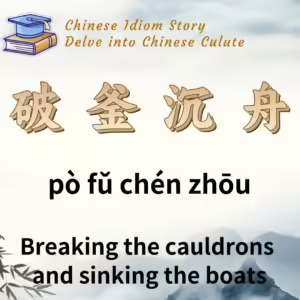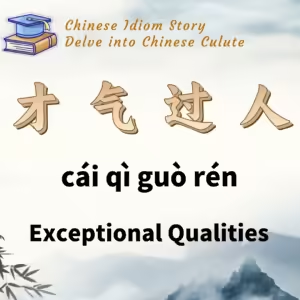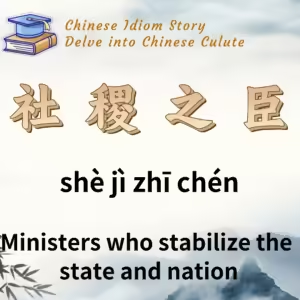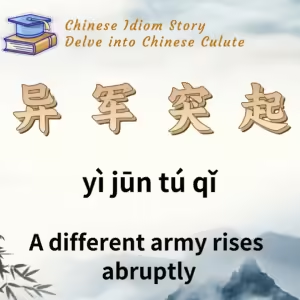
Chinese Idiom: 破釜沉舟 (Po Fu Chen Zhou)
English Translation: Breaking the cauldrons and sinking the boats
pīn yīn: pò fǔ chén zhōu
Idiom Meaning: This idiom signifies a resolute decision to sacrifice everything in order to achieve victory.
Historical Source: Records of the Grand Historian (《史记 · 项羽本纪》).
Idiom Story:
In 208 BC, the Qin general Zhang Han defeated the Chu army at Dingtao (present-day Dingtao District, Heze City, Shandong). The Chu general, Xiang Liang, was killed in battle, leading to a rout of the Chu forces. The Zhao Kingdom, under King Zhao Xie, faced similar misfortunes as the Qin army crossed the Yellow River to attack. Fearing for their safety, King Zhao retreated to Julu (in present-day Pingxiang, Hebei) and sent envoys to the King of Chu, requesting reinforcements.
Xiang Yu, seeking revenge for his uncle’s death at the hands of the Qin, passionately asked the King of Chu for permission to lead an army to aid Zhao. The King appointed Song Yi as the general and Xiang Yu as his deputy, dispatching a force of 200,000 troops to Julu.
However, upon reaching Anyang (north of present-day Anyang City, Henan), Song Yi, paralyzed by fear of the Qin forces, ordered a halt. Days turned into weeks, and Xiang Yu, frustrated by the inaction, urged Song Yi to advance. Song Yi dismissed his concerns, claiming it was wiser to wait for the Qin army to weaken themselves by attacking Zhao.
In a moment of desperation, Xiang Yu killed Song Yi and quickly appointed generals Qin Bu and another commander with the surname Pu, sending them with 20,000 troops across the Zhang River to assist Zhao. He then personally led his remaining forces, issuing a bold command:
“Break the cooking pots, sink the boats, and burn down the tents! Each soldier must carry three days’ worth of rations.”
He declared, “The fate of our state rests on this battle. We will advance and not retreat; if we do not achieve victory, there is no return!”
Motivated by Xiang Yu’s fervor, the Chu army launched a fierce attack against the Qin forces at Julu. After nine intense battles, they cut off the Qin supply lines and ultimately defeated them, killing the Qin general Su Jiao and capturing Wang Li. The Qin general She Jian chose to commit suicide rather than surrender. This battle, known as the Battle of Julu, became a pivotal moment in Chinese history.
As a result of this decisive action and the phrase “break the cauldrons and sink the boats,” the idiom 破釜沉舟 emerged, symbolizing determination and the willingness to sacrifice everything for success.






